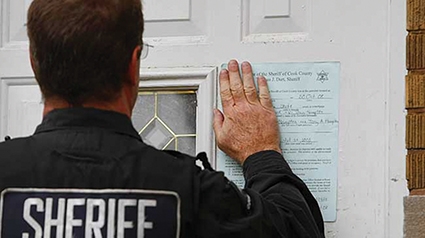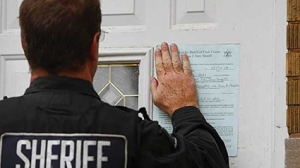Police Eviction Repealed by Parliament, Business Sector Concerned
The Parliament of Georgia has adopted a bill on the third reading repealing the so-called police eviction institution. The draft law ‘Amendments to the Civil Code of Georgia’ was voted in 82 in favor and none against at the plenary session on December 11th.
According to the Amendments, eviction from a residential area will only be possible following a decision from the Court. Paragraph 3 of Article 172 of the Civil Code was repealed, according to which eviction by police is possible.
Withdrawal of real estate from the owner by the buyer will be repealed from the applicable Articles.
The bill was initiated by the Parliament’s Legal Affairs Committee. Relevant amendments will be made in the police and the execution laws. Legislative changes will concern civil and procedure codes as well.
The bill was opposed from the beginning of discussion by the Business Association, Business Ombudsman, Association of Banks and NGO sector.
The representatives of the Business Association of Georgia and Association on Banks of Georgia met with the head of the presidential administration, Giorgi Abashishvili. and discussed the new law. They are asking the President of Georgia to veto the Amendment. If the bill becomes law, they are planning to appeal in the Constitutional Court.
According to the CEO of Business Association of Georgia, Irakli Aslanishvili, there are several arguments on why adopting this law will create problems. First of all, when property ownership ends, it will automatically result in a revising of the practice of the real estate business, pricing policy and lead to a rise in price, in general.
He states that the banking sector, which finances the real estate market, will consider a new risk assessment system which, eventually, will be reflected in an increase of interest rates because both will automatically change under increased risks.
The third argument is that the new law will alter rental standards for legal companies which are involved in renting commercial office spaces, who will begin offering spaces to customers at increased prices. This will result in a decrease in demand, potential increase of income for the people in this business and change in the behavior of investors globally.
“These changes pose serious problems for the country’s economy. The sector which is active in the market will not have a chance to grow. Further, it will create problems for the private and legal real estate business firms. These arguments were addressed at the meeting. The head of the presidential administration has promised to look through our arguments and discuss them with the President,” said Irakli Aslanishvili.
The initiator of the bill, Deputy Chairman of Legal Affairs Committee, Paata Kiknavelidze, stated in his interview with Commersant, that businessmen’s arguments are not based on any factual grounds and eviction by police is not a quick and efficient way for the protection of property rights in the first instance.
Kiknavelidze stated that “nowhere in the world do police solve ownership or any private legal disputes. None of these statements are based on statistics about police eviction.” He said the statistics did not exist and the Ministry of Internal Affairs found the following only on his request: in 2014 just 31% of eviction applications were fulfilled, in 9 months of 2015 only 28% of them were fulfilled.
“I, as the Deputy Chairman of the Legal Affairs Committee, receive dozens of applications which show that requests for police eviction have not been executed- going back five years now. So the belief that police eviction is an effective mechanism to protect property rights is a lie,” said Kiknavelidze.
He further offered the statistics of the Bureau of Enforcement in the same time period: in 2014 the enforcement rate was 79%, and 82% in 9 months of 2015. “So everything points to the fact that the agency which is responsible for enforcement and which has this single function, deals with the task faster and more efficiently than the police,” he said.
The Deputy Chairman explained that this law does not have a direct connection to social issues and the most essential aspect is the legal issue. In particular, according to Article 20 of the Constitution of Georgia, no one has the right to enter an apartment or other premises against the will of the owner if there is no court decision or urgent necessity backed by law. He said police eviction was an unconstitutional concept.
Ana Akhalaia











